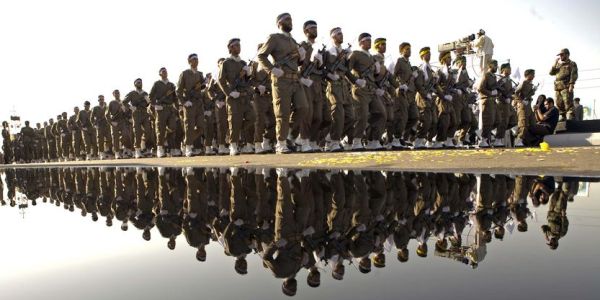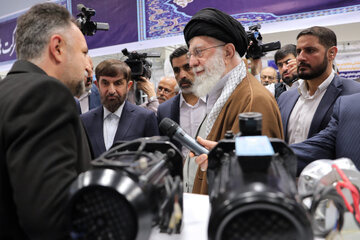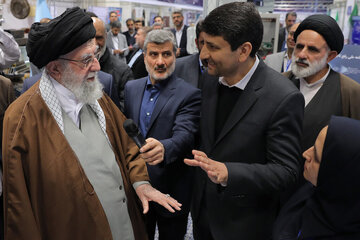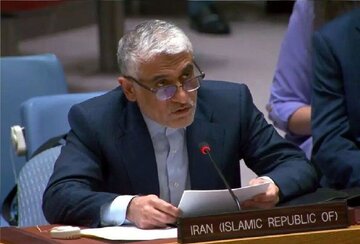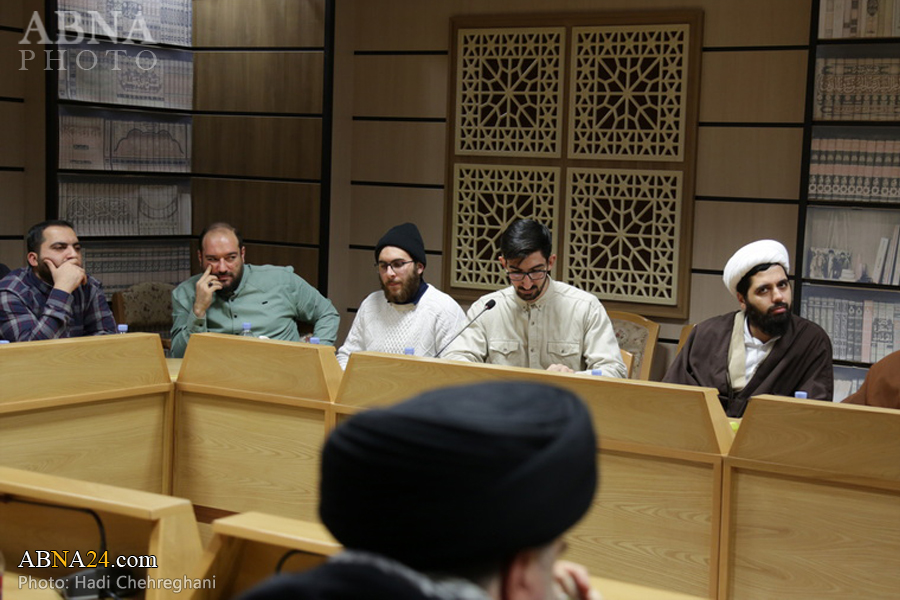Iran has signaled that it may take “direct action” if Islamic State of Iraq and Syria, or ISIS, fighters attack either Baghdad or Shiite holy shrines in Iraq.
“Baghdad, the holy shrines and the shrines of Shiite imams are surely all among the Islamic Republic’s red lines,” said Brig. Gen. Mohammad Baqeri, who heads joint affairs of the Iranian Armed Forces. “The Islamic Republic will take direct action [if they are attacked].”
Baqeri didn’t spell out exactly what he meant by “direct action,” which might imply the introduction of combat forces, a possibility he didn’t rule out.
He further said Iran would provide Iraq the needed “support and provide them with the necessary training to confront any danger.”
Baqeri’s comments follows a similar warning made a few months ago by Iranian President Hassan Rouhani. The Iranian president said Iran would resort to “any possible means” to protect the holy sites in Iraq – including those in Karbala and Najaf, the heart of Shiite Islamic teaching – and the country’s capital from attack.
Iran is already providing pilots to fly fighter aircraft in defense of Iraqi ground troops. In addition, the Iranian Revolutionary Guard Corps has placed advisers with Iraqi combat units and is providing equipment.
“When you start seeing Iranian aircraft, (Iranian Revolutionary Guard Corps) forces on the ground, Iranian advisers training the Iraqi military, it could easily devolve into a regional conflagration,” Smyth said. “It’s not like Riyadh wants to back ISIS, but what are they going to do when they see a mobilization like this, and no other outside force to quell it?”
With the growing prospect that Iran may take action in Iraq to stop ISIS, Smyth believes it could leave the United States with little choice but to intervene militarily in Iraq as well, adding that the U.S. cannot allow Iran to take the lead in halting ISIS.
Last June, Shiite Muslims organizations in India had announced that they have recruited some 30,000 Shiite fighters to defend Shiite holy sites in Iraq.
There are an estimated 50 million Shiite Muslims in India with close ties with those in Iraq and Iraq.
Iran’s renewed threats of intervention come as the Islamic State, or ISIS, is slowly closing in on Baghdad and already has destroyed a number of Shiite shrines, Christian sites and Muslim holy places.
Last June, ISIS fighters destroyed the tomb of the prophet Jonah in Mosul when it took over the city of two million people last June with just a handful of fighters. His tomb for centuries has been revered by Muslims and Christians alike.
ISIS fighters believe that giving veneration to tombs and shrines is against the teachings of Islam.
With ISIS’ gradual encroachment toward Baghdad, which is just inside predominantly Shia territory, there is mounting concern that other attacks could occur in the Shiite-dominated region to the south.
One of the cities in ISIS’ path is Karbala, which holds many shrines revered by the Shiites, including the shrine of Imam Hussein (A), whose brother Abbas (A), died in the Battle of Karbala in 680 A.D.
Karbala apparently holds particular significance to ISIS and they believe that there’s still unfinished business in Karbala.
A warning to Karbala came in June from ISIS in which an ISIS spokesman said, “We will settle our differences not in Samarra or Baghdad but in Karbala, the filth-ridden city.”
ISIS also is threatening to destroy the Shiite shrine of the Mosque of the Holy Dome in Samarra.
With Samarra and Karbala in ISIS’ sights, Iran would intervene in a direct confrontation with ISIS.
In 2006 when the Golden Dome was attacked by ISIS’ predecessor, the Islamic State of Iraq, some tens of thousands of deaths resulted, with another four million people displaced.
/129
Iran has signaled that it may take “direct action” if Islamic State of Iraq and Syria, or ISIS, fighters attack either Baghdad or Shiite holy shrines in Iraq.
1 December 2014 - 07:07
News ID: 655208
